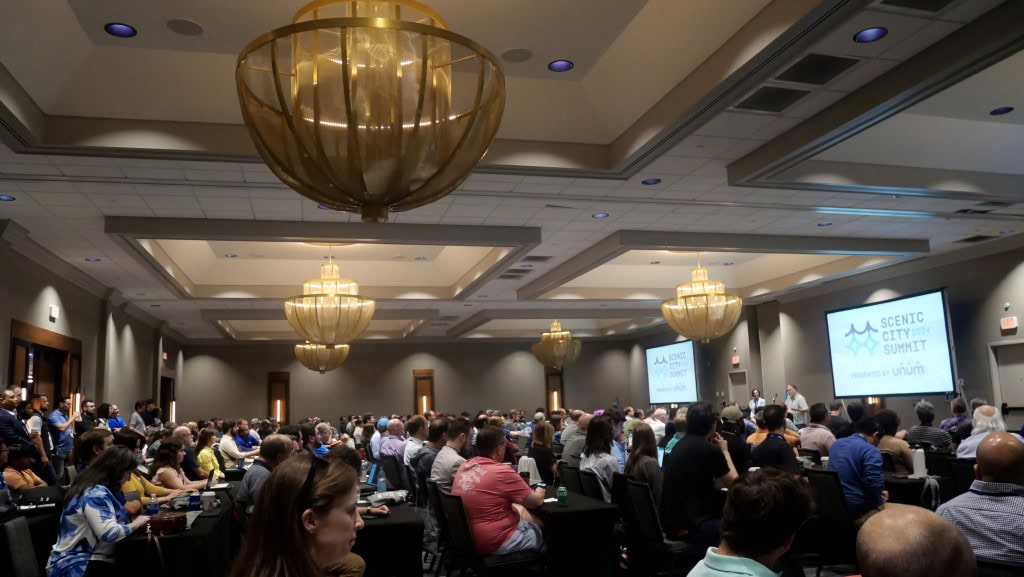My next guest is a person I have known for years, and have worked with on several occasions, Jason Strate (@stratesql). Jason is a very active writer and speaker (at my first SQL Saturday event, he spoke four times!), and always seems very busy. His blog (jasonstrate.com) had 23 posts just last month, and his twitter account is always active with interesting SQL and non-SQL tweets.
If the blogs and tweets weren’t enough, just this past year, Jason was a coauthor on one book last year (Expert Performance Indexing for SQL Server 2012), contributed to another (Pro SQL Server 2012 Practices), and is credited as a tech editor on yet another (Professional Microsoft SQL Server 2012 Administration), and if all this wasn’t enough, published an kindle eBook about SSIS (31 Days of SSIS with SQL Server 2008 R2).
I look forward to seeing Jason’s answers to my interview, as he is probably the most driven writer I know, so I expect his answers will get me that much closer to the understanding of why we writers do what we do…
——————————————————
1. There was a point in time when you didn’t have a blog, didn’t tweet, and probably had no public presence whatsoever. And then, one day, you made the decision to put yourself out there. What prompted you to get started writing?
When I first started writing it was basically a way for me to read something at home, then catalogue it for ease of access when I got to work. Often it was just a link with an explanation to why I thought it was interesting. Other times, it would be a script with the tweaks I had made – blogged just for safe keeping. I did this for a number of years without any knowledge of whether people were reading the posts, I was just keeping a running collection of notes.
At some point, about 10 years ago, I watched a webcast that Kimberly Tripp had put together on index fragmentation. One of the big take-aways that I got from the presentation was that someone was able use sharing of information as an aspect of their career. Color me naive, but the idea of writing serious articles, or posts, hadn’t occurred to me prior to that point. Afterwards, I started putting a little more effort and aim into the posts that I was writing. Because an with audience for a fragmentation video, there was surely an audience for something I could write.
2. We all have influencers that affect our trajectory as a writer. It may be a teacher who told you that you had great potential, or another writer who impressed you that you wanted to be like? Or perhaps on the other end of the spectrum it was a teacher who told you that you were too stupid to write well enough to spell your own name, much less have people one day impressed with your writing? Who were your influences that stand out as essential parts of your journey to the level of writer you have become?
I wish I had a really good story here. There is no oppression from teachers or inspiration that bestowed on me, I basically kept my head down while serving time in the educational system. The only impression that school left me with was that writing wasn’t important in life and if you made a career of it, you better be prepared to poor for a long time. So uplifting, but it would be no surprise that from an early age I didn’t see the value in writing.
Now, I did have an influencer in my 20s that did get me started on the path of self-improvement that has to be noted. And while it isn’t specifically a writing influencer, he did get the mud moving to help me re-envision what was possible. This was my friend Steve Coyle, for most of my 20s he was a constant friend that was always there to talk about how we could help motivate each other to move forward. He was the first person I met that explained to me the value in networking.
As I mentioned, my original inspiration was from Kimberly Tripp. She was also an influencer, along with a lot of people that readers already know. These include Louis Davidson (editor note: who?), Kevin Kline, Denny Cherry, Thomas LaRock, Brent Ozar, Paul Randal, Grant Fritchey and Jonathan Kehayias. As I’ve grown in my writing, I’ve watched how they write and looked to ideas on how to improve how I write.
In the past couple years, I’ve started looking outside the SQL Server community to find new influencers. This has brought in a few new names. One is Darren Rowse, who wrote the ProBlogger books, he’s has had a lot of influence on how I put topics together. It’s helped me find not just ideas to write about but ways to package them to attract readers. There’s also Tim Ferris and Leo Babuata – who are fairly opposite self-help authors. One thing I’ve started to realize is the need to be influenced and seek improvement across my entire spectrum of interests, because it helps raise the level of everything and raising the heights that I can take my writing and life.
3. As the years pass, how has your writing changed? Do you feel like it is becoming a more natural process? Or perhaps you get more critical of your own writing to the point that it takes you longer?
There are a few ways my writing has changed over the years. One of the first big changes was transitioning from just posting code and links to explaining the value and purpose for that content. This led to an increase in the length of posts and the depth of the topics. Ever since I wrote the indexing book, my writing has really changed. I’ve become a lot better at drawing connections between what I write and the images and scripts included in posts. I try to explain everything, which makes for some really long posts. But that problem has been solved with the idea of breaking posts into multiple topics.
I am probably more critical of my posts that I used to be, but not overly critical. I really like to make certain that in every post, from the question or idea proposed to the conclusion, that there is a clear linear path of logic. I often use Sarah, my wife, as a reviewer for posts to be sure that, while she may not understand the content, does the logic of the conversation flow from beginning to end. She likes to point out that I don’t use enough commas.
4. Assume a time machine has been created, and you are allowed to go back in time to speak to a group of potential writers, in which you and I are in attendance. What would you tell "past us", and do you think that your advice would change where you and I are in our careers now? Like would you tell yourself that one day you would be sitting here for a rather long period of time answering interview questions and not getting paid for it, instead of doing something else?
Given the chance, I would like there are a few things I would have impressed upon an early group of writers. First, make sure you are writing under some form of branding from the start. I’ve been blogging on www.jasonstrate.com for only about three years. Everything before that had moved from time to time between probably five or six different hosts and platforms. Often, I’d build and then abandon my audience without knowing it.
Next, spend some time really developing the blog posts. They don’t need to be masters of art. But they need to have an opening, body, and closing. It was years before I got to that point – which had been hammered in while in school. It was a long time before I realized, that it made a difference in blogging.
And since you’re working on developing your writing, use the blog to explain something, not just share things you find. Got a cool script – fine, post it – but also write down why it is cool and should be used. When I started explaining things, more people started to care about what I was writing down.
Finally, figure out how to write on a regular basis. At least once a week. If you’re writing on a blog, its meant for an audience. If you aren’t writing weekly or at least a few times a week, what is going to motivate an audience to stick around or come back. There are so many voices in the world today, that yours needs to stick around if you want it heard.
I’m not sure I would have listened, but it would have been cool to have gotten that advice. I’d like to think that had that happened, I’d probably have shaved 3-5 years off the progress it took to get to where I am now.
5. Finally, beyond the "how" questions, now the big one that defines the interview series. Why do you do write?
There are a few driving forces behind why I write. First, I’m naturally curious. When I was a kid, picking up an encyclopedia for a single topic always meant I would read a few others. Writing about SQL Server to me is part of that curiosity, when I hear a best practice, I want to check it and verify it. I want to see that it actually happens and understand what’s going on. Along with that, writing helps me organize my curious endeavors.
I also write for other people. Those that read what I write about and gain something, that’s a big motivator. I’m often astounded when people are excited to hear my thoughts on something or happy that I get to come out to their company and provide mentoring. Because to me, I’m the guy who licked a telephone line once to see if it gave off more or less of a jolt that a 9-volt battery (the answer is more) – and me giving advice is an often humorous turn of events. But, back to the other people, that I write for…
Probably the best answer is a quote from the movie Groove:
Guy: Why do you do this to yourself? Don’t even get paid, risk getting arrested, for what?
Ernie: You don’t know?
Guy: No.
Ernie: The Nod.
Guy: The Nod?
Ernie: Happens to me at least once every party. Some guy comes up to me and says "Thank you for making this happen… I needed this. This really meant something to me." And they nod… and I nod back.
Guy: [scoffs] … That’s it?
Ernie: That’s it.
Bonus Question: Are there any projects coming up that you would like to tell people about?
The most exciting upcoming project I have has to do with where I want to take my blog. I’ve got a number of posts that people really like. But writing isn’t always the best platform for everyone that may be interested in those topics. My plan is to start recording webcasts in the 5 to 10 minute range that encapsulate those posts and deliver them in a new manner. I’m hoping this will help me expand my audience. Also, I’m hoping it’ll help me write better since it will force me to evaluate a lot of old posts – and possibly re-write a few of them.
———————————————
Excellent…simply excellent. I love the answer to the why question. I am personally very shy, so I would have NEVER have met any of the people I have if I had never started writing, blogging and speaking, so I identify with that a bit.
As for my question for “the” answer to the time machine question that will trigger me writing my own interview answers, Jason was way off that mark, with much more interesting answers. Branding is a great idea, but even if you don’t feel like that is for you, stick with the platform you have where-ever, and probably only move once and for a good reason. That is why I have my blog still on sqlblog.com. It is a good group of bloggers, I really like Adam Machanic and Peter DeBetta (though I haven’t seen him since he drank the blue Kool Aid a few years back), and I get more hits than I could on my own. Same with some of my simple-talk work, Tony Davis and Andrew Clarke edit my work and gives it a professional air that I could never.
The note about working on the blogs for a while is great too. For my What Counts For a DBA series of blogs on simple-talk, I try to treat that a bit like art, and really work for hours to hone them. For my technical posts, I am a lot freer with the text, but spend as much time as I can testing the code I put out, doing my best to make sure that the query I post works not only for my server usage, but for any server usage I can think of. Writing only what you have used in production is a great disservice to your readers because you don’t do everything. You might present an idea, but if you want to state definitively that solution X is the the best solution, you had better have tried A-W and Y and Z too.
Anyhow, next up is another friend of mine who has been influential in many of the members of the SQL Server Community. Kevin Kline. Till next time, I hope these posts inspire you to become my 100th subject in a few years (and will answer the inspiration in just that way, naturally!)





Load comments